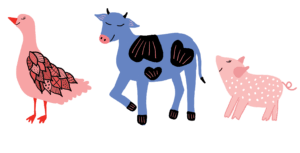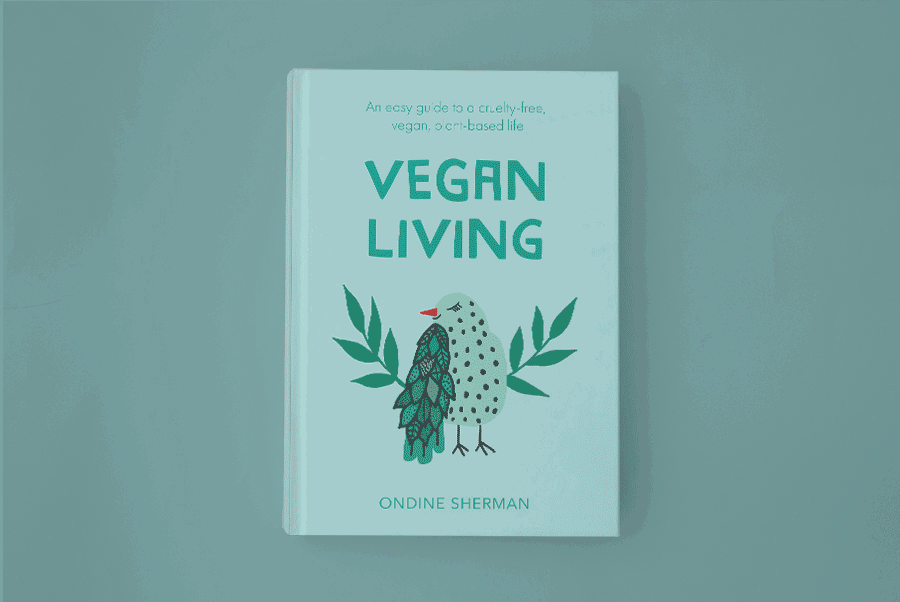We often talk about ‘sentience’ in animal protection work. What does it mean, exactly? And why is it even important? Ondine Sherman’s latest book, Vegan Living, breaks down the science of sentience and offers an explanation as to why recognising it is crucial for our vision to create a better world for animals.
What is sentience?
The word comes from the Latin verb sentire, which means ‘to feel’ and is related to sensus, meaning ‘sense’ or ‘feeling’.
For the longest time, we humans have imagined animals as stimulus–response machines and convinced ourselves that their inner lives are empty and barren. Today this is regarded by scientists as totally incorrect.
Animals have emotional lives, just like us, and they feel a similar spectrum of highs and lows. Individuals from a wide variety of species experience emotions ranging from joy and happiness to deep sadness and grief, along with empathy, jealousy and resentment.
Researchers have discovered that many species of animals have the same neuroanatomical, neurochemical and neurophysiological substrates of conscious states as humans. They also have the capacity to exhibit intentional behaviours. We are not unique in possessing the neurological substrates that generate consciousness; all mammals and birds and many other creatures, including octopuses, also have them.
Of course, there are differences between humans and other animals. But the differences are not found in the emotional domain. This psychological wall we have built allows us to make laws and create mega-industries that differentiate us from animals, and farmed animals from pets. We categorise animals according to species, economic value and use, rather than their capacity to suffer. This wall allows a farmer to routinely cut off a pig’s tail without any pain relief – something that would be against the law in many countries, including Australia, if done to a dog.

Over 90 per cent of Australians believe cattle, sheep, goats and pigs are sentient. It’s hard to justify why we shouldn’t treat pigs and dogs the same way when all the measures we would use to differentiate
them – their intelligence, sensitivity, sociability and even domesticity – are equal.
The only distinction between a pig and a dog is whether they’re inside or outside our circle of compassion.
Loving animals means loving all animals, not just the ones we share our homes with.
Adit Romano and Meital Ben Ari, founders of Freedom Farm Sanctuary, shared a story with me:
‘Two little lambs, Maya and Jenny, came to our sanctuary refusing to drink from the bottle. We were very worried they wouldn’t survive and managed to bring their mother, destined for slaughter a few days later, to the sanctuary too so she could breastfeed them. The mother arrived and was terrified of humans; she would hardly let us lead her into the sanctuary. But as soon as she heard the cries of her two babies, she rushed to their side positioning her body between us and them, protecting them from the harm she assumed we’d inflict. It was such a powerful moment that it made all of us cry. We realised more than ever that a mother is a mother and that maternal bond is the right of every creature. We have no right to take it away.’
If you need a reminder of why you want to become vegan, give your dog or cat a cuddle and remember that farmed animals are just as loving and sensitive as your pet is. Or go to an animal sanctuary and meet the creatures you’re helping to save: with just one look (and a belly scratch) your decision will be confirmed.

The author will donate half the proceeds from the sale of the book to Voiceless.
Voiceless Blog Terms and Conditions: The opinions expressed on the Voiceless Blog are those of the relevant contributors and may not necessarily represent the views of Voiceless. Reliance upon any content, opinion, representation or statement contained in the article is at the sole risk of the reader. Voiceless Blog articles are protected by copyright and no part should be reproduced in any form without the prior consent of Voiceless.

